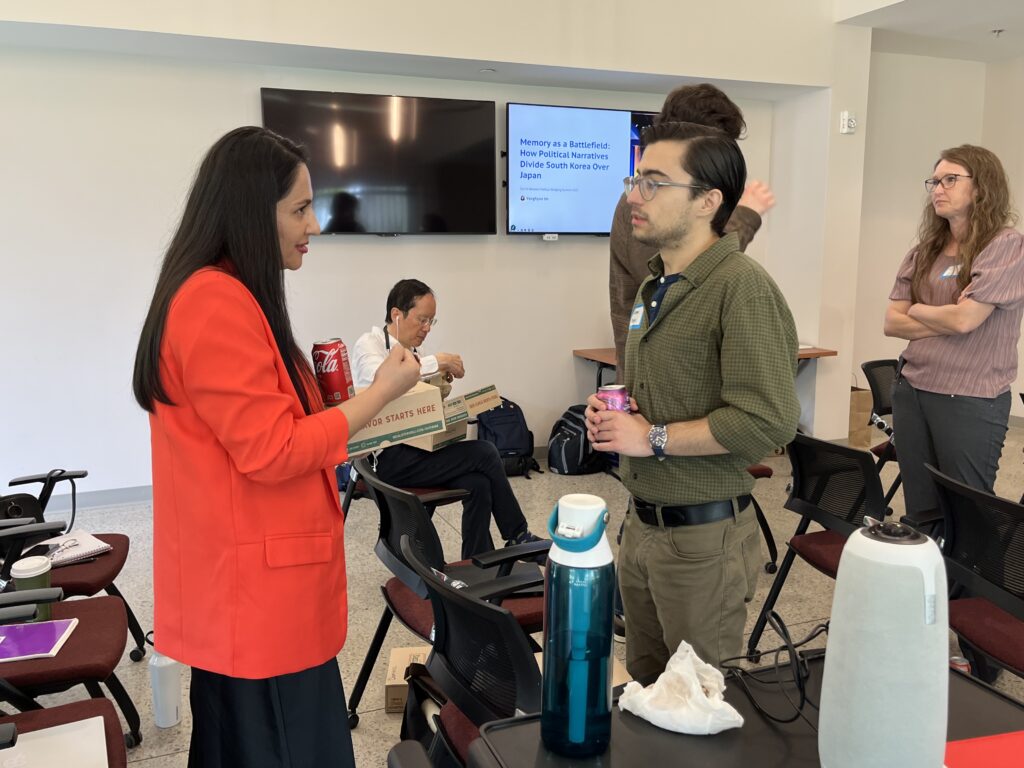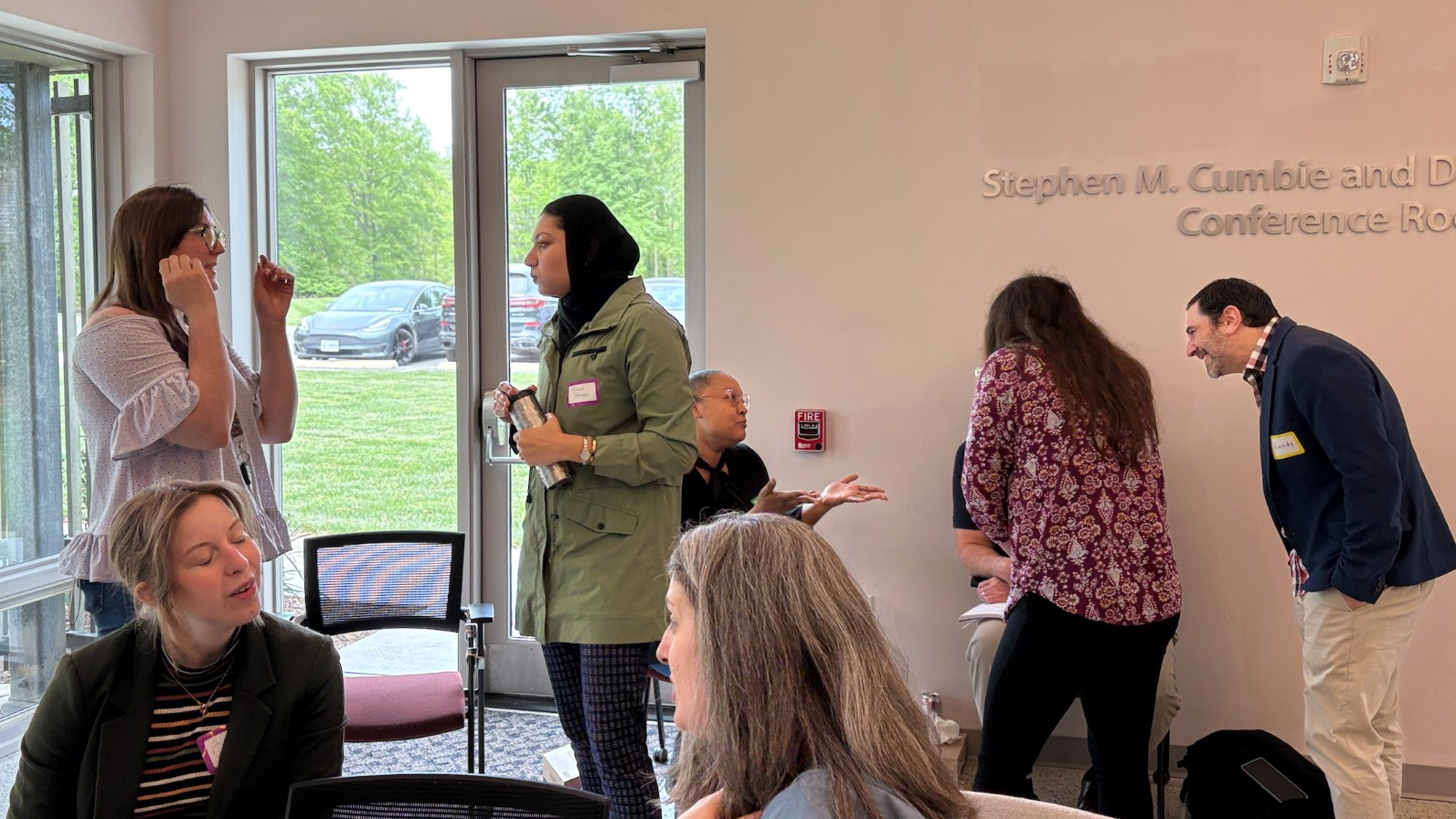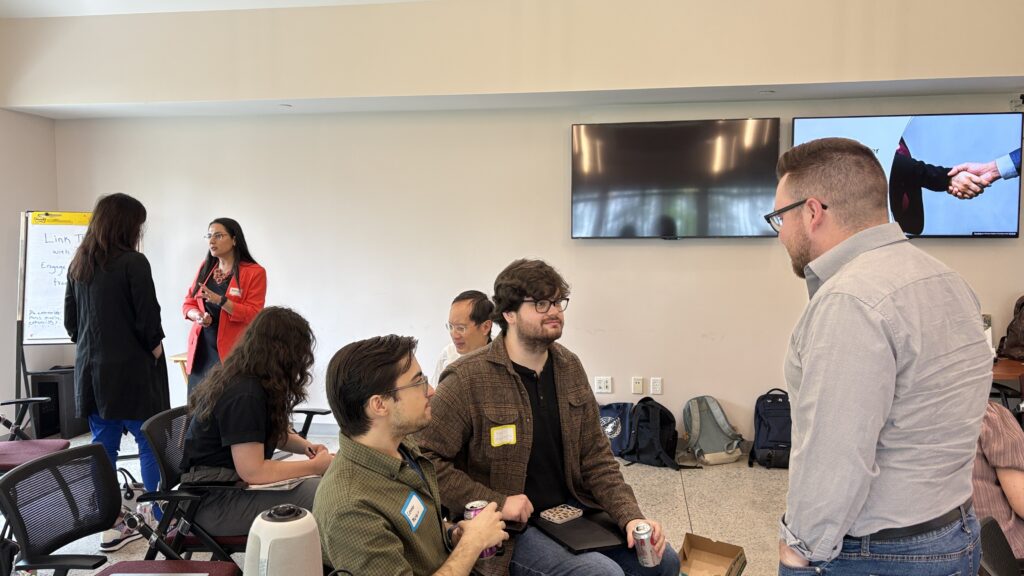FRAMING THE SUMMIT

Dr. Daniel Rothbart opened the summit by emphasizing that polarization and extremism are not just political issues but deeply moral and relational.
Division, he argued, is fueled by a failure of curiosity.
He called on participants to approach one another with compassion and to see the summit as a space for peacebuilding through shared inquiry and connection.
STUDENT RESEARCH EXPO
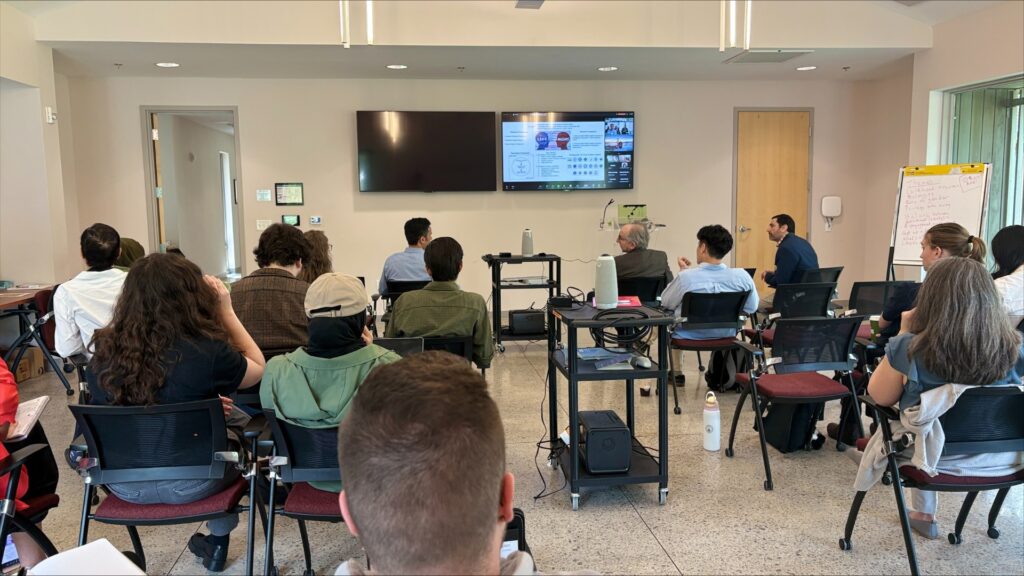
Next, student researchers presented topics ranging from right-wing extremism to the role of liberal spaces in radicalization, campus politics, and the influence of historical memory. A shared theme across presentations was the double-edged nature of storytelling: narratives can entrench division, but also provide tools for healing and understanding.
Students explored how institutions—universities, media, political parties—can either amplify polarization or create opportunities for connection and resilience.
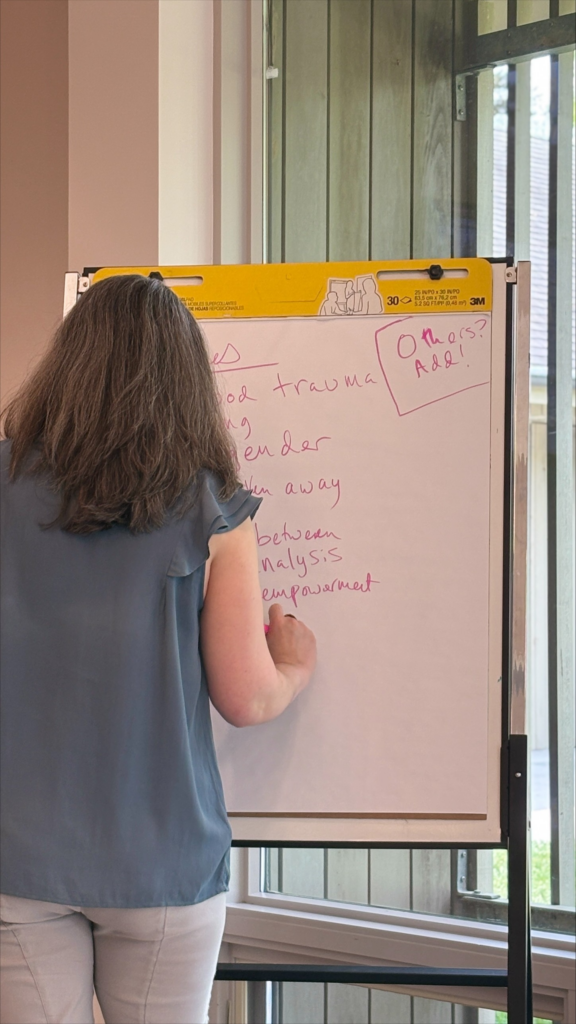
Attendee noting points from student presentations
Though methods varied, all researchers sought to understand how belief systems form, how trauma and exclusion shape group identities, and how thoughtful narrative work might help shift rigid perspectives. Together, these presentations painted a complex, multi-layered picture of the social forces that drive polarization—and the possibilities for transformation.
COLLABORATION INCUBATOR
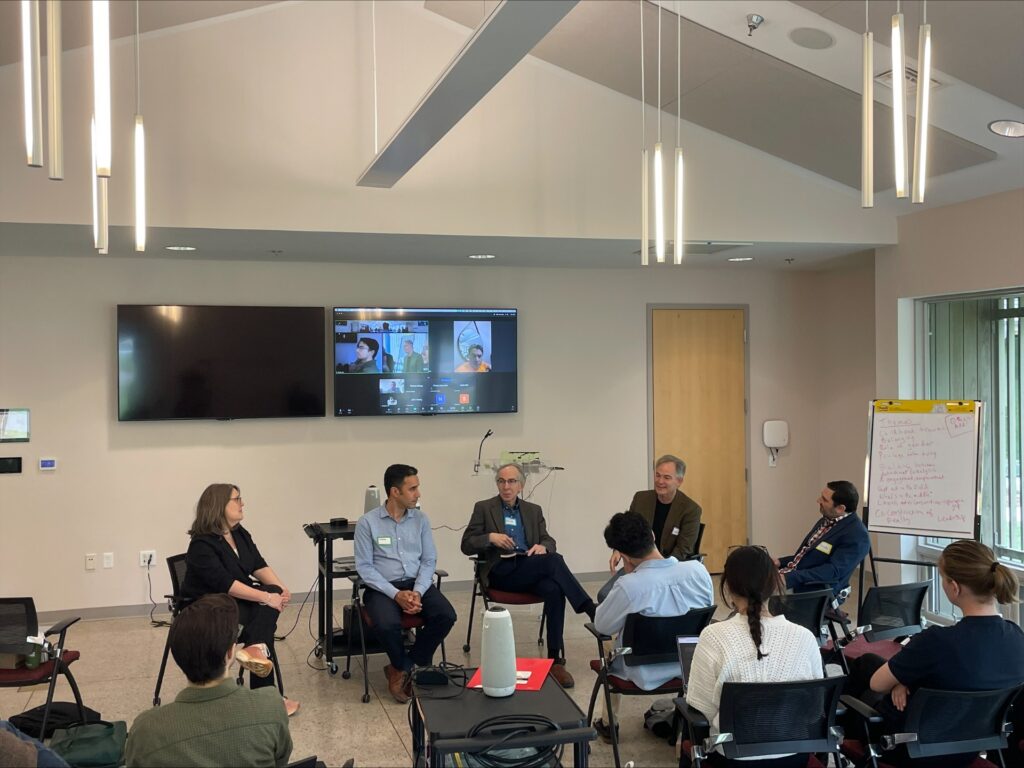
The panel emphasized the power of narrative in both fueling and healing political polarization. Across disciplines, there was agreement that stories—whether told through media, performance, or research—shape identity, reinforce group boundaries, and influence how conflict is understood.
Participants highlighted the importance of context, noting that the same language can have vastly different effects depending on audience, platform, and social dynamics. There was a shared interest in counter-narratives that humanize others and reduce division, especially among youth and within online spaces.
Another shared priority was the need for evidence-based evaluation. While many innovative methods—such as arts-based dialogue, counter-narrative development, and empathy-building exercises—show promise, panelists emphasized the importance of assessing what actually works and why.
Questions from the audience brought important themes to the surface:
- How do we sustain empathy in polarized environments?
- How do we lead with compassion across value divides?
- How do we create better collective stories that foster understanding?
FACULTY BIOS
- Daniel Brumberg (Georgetown): Examines civic engagement and peacebuilding through “humanity check-ins” and storytelling to bridge divides.
- Babak Bahador (GW): Researches media and political rhetoric’s impact on polarization, using a Hate Speech Intensity Scale.
- Solon Simmons (George Mason): Studies narrative discourse and advocates for storytelling techniques to build trust across divides.
- Rachel Gartner (Georgetown): Focuses on dialogue across differences with Georgetown’s “In Your Shoes” theater-based empathy program.
- Daniel Rothbart (George Mason): Studies ethnic conflict and extremist mindsets, analyzing psychological and moral frameworks of radicalization.
“JUST FOR US” SCREENING
The event concluded with attendees enjoying Alex Edelman’s stand-up comedy show, Just For Us.




CLOSING MESSAGE
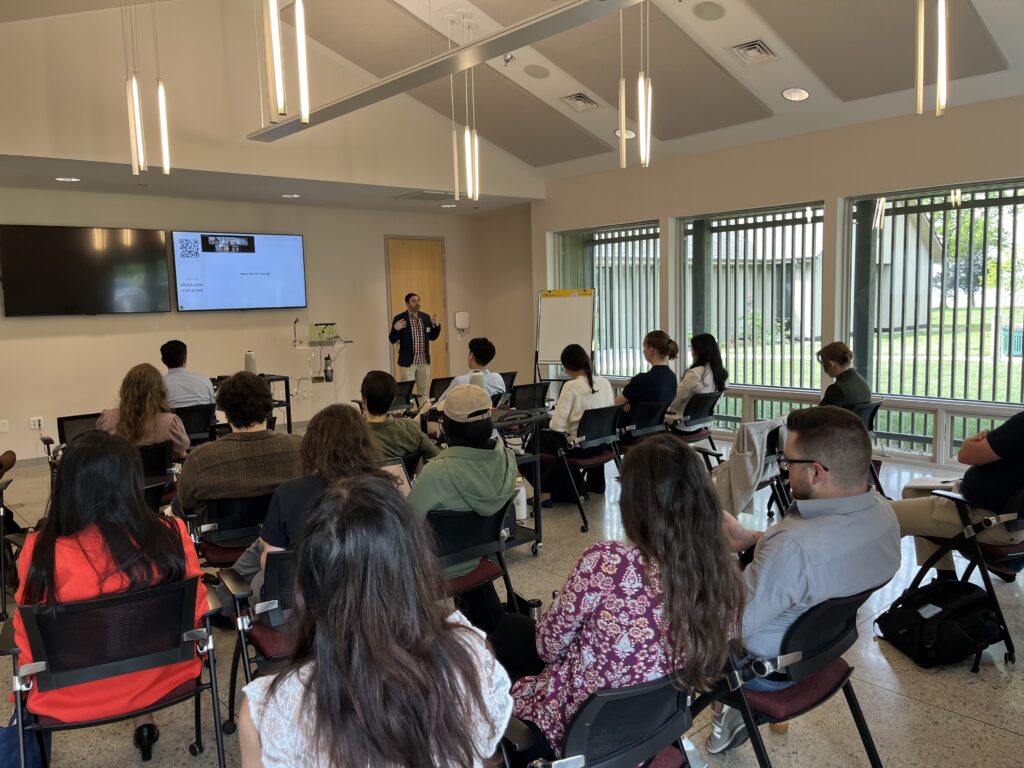
The summit ended with a call to keep compassion central in our work. Polarization often stems from pain and exclusion, and understanding that is key to meaningful dialogue. As peacebuilders and analysts, we must approach others—especially those we disagree with—not with judgment, but with a desire to understand.
Thank you to those who took part in the summit and those who worked tirelessly to make this event a possibility. We hope the conversations and connections made will continue to inspire you. Let’s carry this momentum forward as we collectively work toward understanding and connection across divides.

